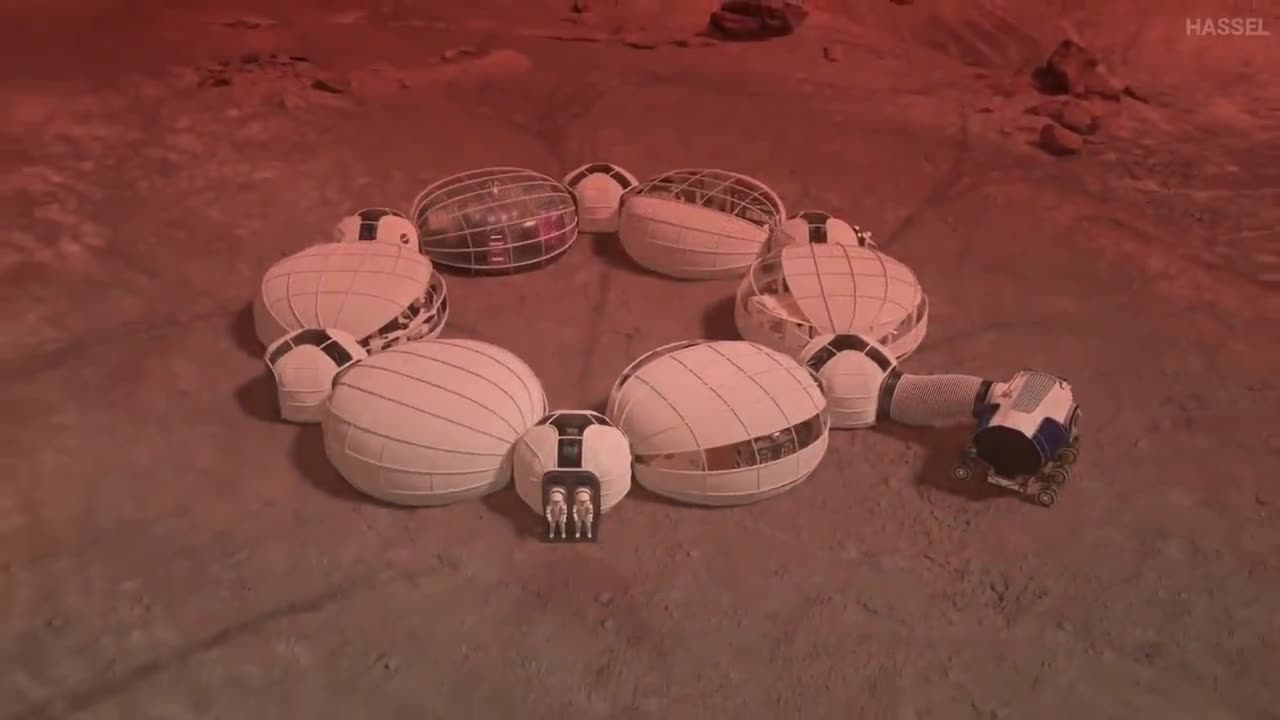Premium Only Content

This is how first human being lives on Mars
Living on Mars is a complex challenge that would require significant technological advancements and careful planning. While there hasn't been a human settlement on Mars as of my last knowledge update in September 2021, here's a description of some key considerations for how humans might eventually live on Mars:
Habitats: Martian habitats would need to be designed to protect inhabitants from the harsh environment, including extreme cold, radiation, and low atmospheric pressure. These habitats could be constructed on the surface, underground, or in domed structures.
Life Support Systems: Self-sustaining life support systems would be essential to provide oxygen, remove carbon dioxide, and recycle water and nutrients. This would reduce reliance on Earth resupply missions.
Food Production: To sustain a Martian colony, methods for growing food on Mars would be crucial. This might involve hydroponics, aeroponics, or other advanced farming techniques that can operate in Martian soil or hydroponic systems.
Energy Generation: Solar panels could be used to capture energy from the sun, but backup power sources or advanced energy storage systems would be needed to provide electricity during Martian dust storms, which can obscure sunlight for extended periods.
Transportation: Regular transportation between Earth and Mars would be required for supplies, personnel, and scientific missions. Developing efficient spacecraft and launch systems is essential.
Radiation Protection: Mars lacks a strong magnetic field and thick atmosphere, which means it receives more radiation from space than Earth. Radiation shielding for habitats and spacesuits is essential to protect human health.
Resource Utilization: Utilizing Martian resources, such as water ice for drinking and oxygen production, would reduce the need to transport supplies from Earth. This might involve drilling for subsurface water or extracting resources from the Martian atmosphere.
Healthcare: Medical facilities and equipment would be necessary to address health issues that could arise in the Martian environment, including the long-term effects of reduced gravity on the human body.
Psychological and Social Factors: Living on Mars would present psychological challenges due to isolation and confinement. Strategies for maintaining mental health and social well-being would be crucial.
Legal and Ethical Considerations: Establishing a legal framework for Martian settlements, including property rights and governance, would be important for long-term sustainability.
It's worth noting that various space agencies, including NASA, and private companies like SpaceX, have been actively researching and planning for potential human missions to Mars. However, the timeline for establishing a permanent human presence on Mars remains uncertain and would likely be a multi-decade endeavor.
-
 LIVE
LIVE
Mally_Mouse
19 hours ago🌶️ 🥵Spicy BITE Saturday!! 🥵🌶️- Let's Play: Tower Unite!
172 watching -
 24:19
24:19
Stephen Gardner
1 hour ago🚨BREAKING: FBI Raid of John Bolton’s House Reveals THIS!
9.78K24 -
 8:31
8:31
MattMorseTV
3 hours ago $0.51 earnedTexas just did the IMPOSSIBLE.
15.5K47 -
 24:39
24:39
MYLUNCHBREAK CHANNEL PAGE
1 day agoInterdimensional Beings at Borobudur
22.6K14 -
 12:42
12:42
Scammer Payback
21 hours agoCalling Scammers who were Raided
3.76K8 -
 23:31
23:31
IsaacButterfield
14 hours agoThe Woke Mob Is Really CANCELLING Matt Rife For THIS…
2.83K8 -
 1:23
1:23
WildCreatures
8 days ago $0.90 earnedThis mother armadillo eating her palm nuts is truly adorable
3.82K11 -
 8:59
8:59
The Art of Improvement
9 hours agoHow to Build the Most Powerful Mindset for Success
2.2K2 -
 LIVE
LIVE
GritsGG
1 day ago36 Hour Stream! Most Wins 3420+ 🧠
904 watching -
 1:26:16
1:26:16
Michael Franzese
19 hours agoMenendez Brothers Denied Parole – Newsom Holds Their Fate
112K86